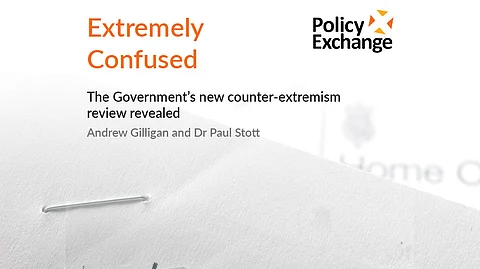

Two types of extremism which have their origins in the Indian subcontinent, described as Pro-Khalistan Extremism and Hindu Nationalist Extremism, have emerged in a leaked report and angered British Hindus for the erroneous labelling of Hindutva.
‘Extremely Confused: The Government’s new counter-extremism review revealed’ released by the Policy Exchange think tank this week describes Hindu Nationalist Extremism as “also referred to as Hindutva, which roughly translates as Hinduness”.
City Hindus Chair Alpesh Patel OBE told iGlobal: “I was bemused by the 'Hindu Nationalist' and appreciate you have to placate people to appear even handed. On that basis, they should have included the UK threats from Buddhist extremists and other fictional terrorist groups – let's not forget the Christian Knights of the Order of the Crusades factions.
“Like fairies, they don't exist, but if it makes the authors feel better and give them cover to include those with a track record of violence then so be it. I am surprised the Mahatma Gandhi (that most famous of Hindu Nationalists) Society was not included.”
MORE LIKE THIS…
He went on to highlight the importance of uniting around values of non-violent political discourse, with democratic liberal values being the benchmark for peaceful British society.
Patel noted: “To protect these values, I am reminded the single largest loss of life from terrorism before 9/11 was the downing of an Air India flight by Khalistani terrorists. Such organisations are proscribed under UK terror legislation under the Terrorism Act 2000.
“I have seen first-hand working in the US Congress the deceitful manner in which theocratic misogynist organisations wanting another Taliban Caliphate State called Khalistan behave. Violence, misogyny go hand in hand with their fundamentalist values. Put aside the world does not need another theocracy in the model of ISIS and the Taliban. The authorities have correctly highlighted it.”
MORE LIKE THIS…
UK Home Office Security Minister Dan Jarvis told the House of Commons this week that it was “not entirely clear which version of the report was leaked” and stressed that its claims did not represent government policy.
“As we have said repeatedly, Islamist extremism followed by far-right extremism are the biggest threats we face... Ideology, particularly Islamist extremism followed by far-right extremism, continues to be at the heart of our approach to countering extremism and terrorism,” stated Jarvis.